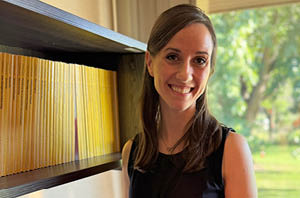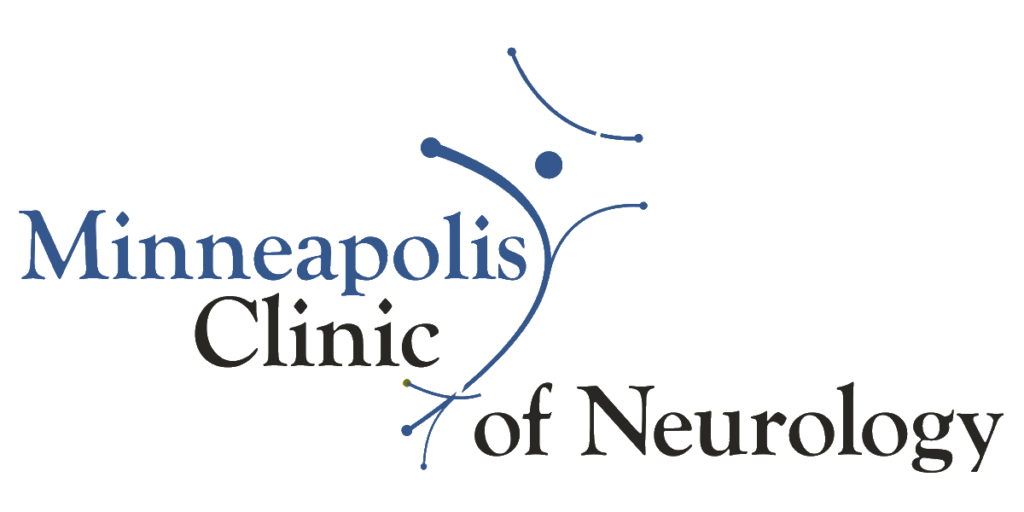Turning Personal Experience into Purpose
For Dr. Jessica Piché, a neurologist at the Minneapolis Clinic of Neurology’s Edina location, multiple sclerosis care is more than a medical specialty—it’s personal.
Her grandmother lived with MS, and from a young age, Dr. Piché watched the challenges her family faced. She attended MS Society Bike 150 events in South Dakota, listening to stories from patients and caregivers. Those moments planted a seed that would grow into a lifelong purpose.
I was exposed to MS from a young age,” Dr. Piché said. “When I had the chance to shadow a neurologist and saw how far treatment had come, I fell in love with the field. The world of MS was exploding with new medications, and it just felt like an exciting place to make a difference.
Why Early MS Diagnosis Changes Everything
Dr. Piché treats patients across all neurological conditions, but her primary focus is on multiple sclerosis. She emphasizes that early diagnosis and treatment are key to protecting long-term health.
I tell my patients, you’re living in the best time to have MS,” she said. “If we can get you diagnosed and on effective therapy early, we can prevent disability and keep people walking, working, and living their lives.
She recalls that her grandmother spent most of her life in a wheelchair. Today, with more than 20 disease-modifying therapies available, many MS patients can maintain mobility and independence for decades.
How MS Symptoms Can Go Unnoticed
One of the biggest challenges in diagnosing MS early is that symptoms can be subtle or easily dismissed.
People might feel tingling in their hand for a few days or notice one foot dragging when they’re tired,” Dr. Piché explained. “They think it’s nothing, and then it happens again. Sometimes those are the first signs.
Because symptoms vary based on where inflammation or lesions occur, no two cases look alike.
MS is a snowflake,” she said. “Every patient’s disease is unique. We have to listen closely and tailor care to each individual.
A Place Where Patients Can Be Seen Sooner
When patients are first referred, they’re often anxious and uncertain about what’s next. Dr. Piché understands that waiting months for a neurology appointment only adds stress—so she works to remove that barrier.
I keep blocks in my schedule open for new MS patients,” she said. “If someone is discharged from the hospital after a relapse, I can often see them within a week—or even the next day.
The Edina clinic makes care more accessible by offering everything patients need in one location, including MRI, EEG, EMG, infusion therapy, and rehabilitation services.
It’s all in one place,” Dr. Piché said. “Patients can come to one site and get their imaging, infusions, and therapy without having to go anywhere else. It makes things so much easier.
What to Expect at Your Appointment
A neurology appointment with Dr. Piché begins with conversation, compassion, and clarity.
We want to make sure you understand what’s happening and what comes next,” she said. “It’s not just about tests—it’s about forming a plan together.
For patients nervous about seeing a neurologist, Dr. Piché has a reassuring message.
Neurologists don’t bite,” she laughed. “We’re normal people who want to help. Sometimes we’re a little quirky, but we’re here to support you. Even if you’re not sure about treatment yet, establishing care gives you a place to turn when you need it.
Innovation and Hope for the Future
The landscape of MS care is changing rapidly. Researchers are now exploring new treatments that could help regenerate nerve cells and repair myelin—the protective coating damaged in MS.
I’m so excited about what’s ahead,” Dr. Piché said. “In the last 20 years, we’ve made huge progress, and I believe the next 20 will bring even more.
Every day, she sees the impact of that progress in her clinic—patients staying active, raising families, and thriving long after diagnosis.
The highlight of my day is when a patient tells me, ‘Thank you, that really helped,’” she said. “Those moments remind me why I do this.

Key Moments from the Episode
- [00:01:03] Dr. Piché’s personal connection to MS through her grandmother
- [00:01:43] The explosion of new MS treatments and why early diagnosis matters
- [00:03:10] Who is most likely to develop MS and when
- [00:04:40] Why people often overlook early symptoms
- [00:06:25] How MCN helps patients be seen sooner after diagnosis
- [00:07:23] What makes the Edina clinic unique
- [00:08:14] The joy of helping patients find answers and relief
Meet the Specialists You Can See Sooner
The Minneapolis Clinic of Neurology offers expert neurological care at multiple locations with shorter wait times and a commitment to personalized treatment.
Dr. Jessica Piché, MD – Multiple Sclerosis Specialist, Edina
Meet Dr. Piché →
Dr. Beth Ann Staab, MD – Epilepsy & Neuromuscular Disorders, Coon Rapids
Meet Dr. Staab →
Dr. Shelly Larson-Peters, MD – Multiple Sclerosis & Headache, Coon Rapids
Meet Dr. Larson-Peters →
Dr. Gerald Dove, MD – Epilepsy, Clinical Neurophysiology & General Neurology, Golden Valley
Meet Dr. Dove →
Be Seen Sooner
At the Minneapolis Clinic of Neurology, you don’t have to wait months to be seen by a specialist. If you or someone you know is experiencing neurological symptoms.
Call or request an appointment online – no referral needed.
Appointments are available in about two months or less at all five Minneapolis Clinic of Neurology locations.
🎧 Listen to Dr. Jessica Piché’s full episode of the Be Seen Sooner podcast to learn how her personal connection to MS continues to inspire her work and give patients hope.



